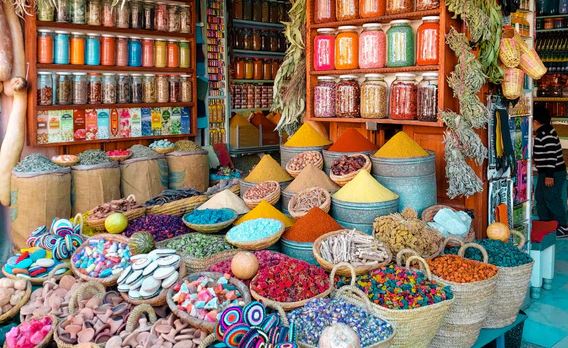Exploring tea markets around the world | |

| |
Tea is a beloved beverage enjoyed by people from all walks of life. Its rich history, diverse flavors, and health benefits have contributed to its global popularity. In this article, we will embark on a journey to explore tea markets around the world. From the bustling streets of Asia to the cozy tea rooms of Europe, we will discover the cultural significance, regional specialties, and trade dynamics that make each tea market unique. The Tea Market in China: Embracing Tradition and DiversityChina holds a significant place in the world of tea, being the birthplace of this cherished beverage. Chinese tea markets offer a glimpse into centuries-old traditions and a vast array of tea varieties. From the delicate white teas of Fujian to the robust black teas of Yunnan, China's tea market showcases the country's diverse tea-growing regions and the artistry behind tea production. Exploring tea markets in China is a sensory experience that takes you on a journey through history and cultural heritage. Japan: The Art of Tea and ZenIn Japan, tea is not merely a beverage but a way of life. The Japanese tea market is deeply rooted in the country's ancient tea ceremonies and Zen philosophy. Matcha, a powdered green tea, takes center stage in Japan's tea culture. The vibrant green color, distinct flavor, and meticulous preparation process make matcha a symbol of tranquility and mindfulness. Visiting tea markets in Japan allows you to witness the artistry behind tea ceremonies and experience the harmonious blend of tradition and modernity. India: The Land of Chai and Assam Tea GardensIndia is renowned for its vibrant chai culture and sprawling tea gardens. The tea markets in India are a testament to the nation's love affair with tea. From the bustling streets of Kolkata to the serene hills of Darjeeling and the vast estates of Assam, India offers a diverse range of teas. Assam tea, known for its robust flavor and strong character, is a favorite among tea enthusiasts worldwide. Exploring the tea markets in India provides a glimpse into the country's tea traditions, colonial influences, and the livelihoods of countless tea workers. England: Tea and TraditionNo exploration of tea markets would be complete without mentioning England. The English tea market is steeped in tradition and elegance. Tea rooms, adorned with delicate china and freshly baked scones, offer a quintessentially British tea-drinking experience. The tea markets in England showcase a wide selection of teas, from classic black teas like Earl Grey to fragrant herbal infusions. British tea culture embodies refinement, afternoon tea rituals, and a deep appreciation for the art of brewing the perfect cup. Kenya: Africa's Tea PowerhouseKenya stands out as a major player in the global tea market, particularly known for its robust black teas. The tea industry in Kenya has experienced significant growth, with tea plantations covering vast landscapes. Kenyan tea markets boast a wide range of teas, from CTC (crush, tear, curl) teas to specialty orthodox teas. Exploring tea markets in Kenya offers insights into the country's agricultural practices, trade dynamics, and the economic impact of tea production on local communities. Frequently Asked Questions (FAQs)
ConclusionExploring tea markets around the world is a delightful journey that unveils the cultural richness, traditions, and diverse flavors associated with this beloved beverage. Whether you find yourself sipping matcha in a serene Japanese tea room or enjoying a cup of Assam tea in the misty hills of India, each tea market offers a unique experience. From ancient tea ceremonies to bustling marketplaces, tea connects people, cultures, and traditions, making it a truly remarkable and cherished global commodity. | |
| Views: 238 | | |
| Total comments: 0 | |